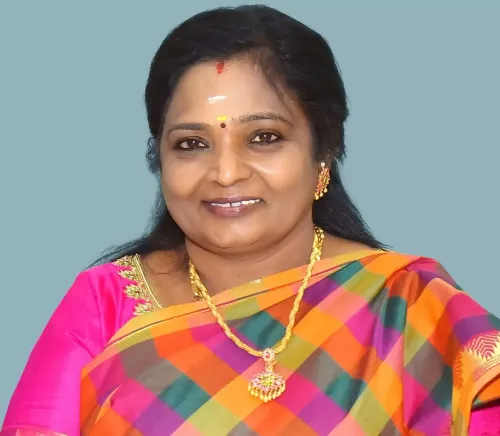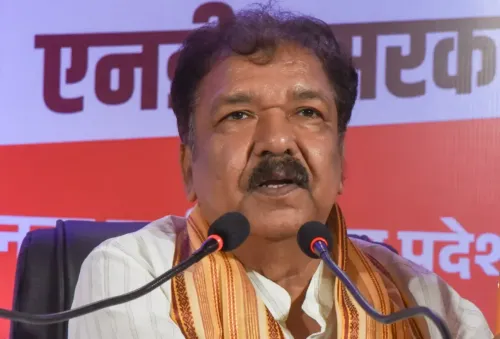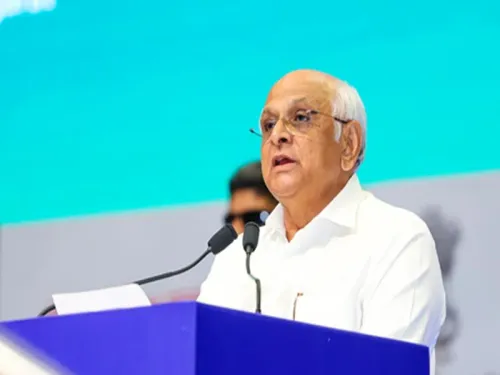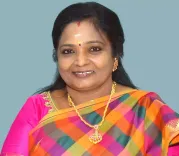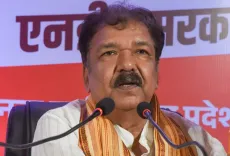Is Abhishek Banerjee Taking Center Stage in the Rising Debate Over SIR?
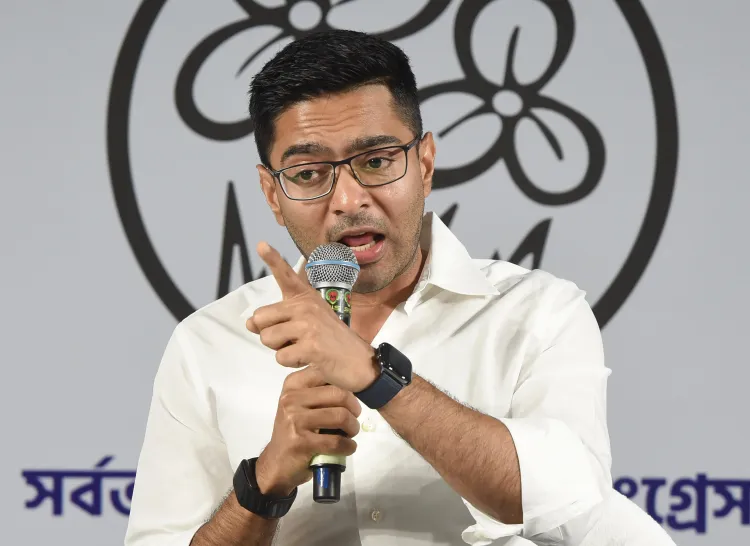
Synopsis
Key Takeaways
- Abhishek Banerjee is rising in prominence within the Trinamool Congress.
- The SIR process has sparked significant political debate and tensions.
- His public engagement signals a strategic shift as elections approach.
- Both TMC and BJP are intensifying their rhetoric ahead of upcoming polls.
- The outcome of the SIR may have lasting effects on voter demographics in West Bengal.
New Delhi, Nov 1 (NationPress) Amidst allegations and counter-allegations regarding the Special Intensive Revision (SIR) of the voter list in West Bengal and other states, Trinamool Congress General Secretary Abhishek Banerjee has emerged as a key figure in the ruling administration opposing this initiative.
The MP representing Diamond Harbour typically prefers to operate away from public attention. His aunt, Chief Minister Mamata Banerjee, who established the party in 1998 and played a pivotal role in elevating it to national prominence, continues to be the public face of the party.
Analysts suggest it is her call that still resonates with voters today, especially as the Bharatiya Janata Party (BJP) has become the main opposition in the state.
In the meantime, Abhishek's swift ascent within the party hierarchy and his meticulous attention to organizational matters have positioned him as the apparent successor.
“Why shouldn’t he assume the role of a general?” retorted a close Trinamool Congress associate when questioned about his current role.
This term gained traction amid the “new versus old” leadership debate, with some party members distinguishing between the two leaders as “Mamata, our leader; Abhishek, our general.”
A mid-level party member, wishing to remain anonymous, indicated that Abhishek is expected to be “more active” as the party prepares for the upcoming Assembly elections anticipated in the first half of 2026.
Since the Election Commission announced the second phase of the SIR rollout, Abhishek has transitioned from being regarded as the organizational cornerstone of the party to a strategic leader on an issue that is intensifying in complexity and emotion.
He has demonstrated assertive public rhetoric linking the SIR process to a broader narrative of disenfranchisement, coupled with swift operational mobilization to protect presumed “vulnerable voters.”
In a press conference, Abhishek criticized the process, although he generally avoids large-scale media engagements.
He has directed party agents at the booth level to closely monitor the poll body’s officials who will be conducting door-to-door voter verifications.
Additionally, he is engaging with Trinamool Congress leaders both in person and virtually to formulate party tactics.
Veteran journalist and writer Suvashis Maitra views his emergence into the spotlight as a defensive strategy.
He references a similar voter revision process in Bihar, where fears of significant voter removals were raised. However, only 6.5 million voters were ultimately taken off the draft list.
“A comparable situation is unfolding in West Bengal, where some BJP officials have escalated claims that millions of fraudulent voters will be erased from the electoral rolls,” he stated.
“Likewise, certain TMC leaders have raised alarms, including threats of ‘rivers of blood’ should the list be ‘tampered with’,” he added.
The escalating tensions preceding a highly anticipated Assembly election have propelled Abhishek into the limelight. As Mamata intensifies her stance, her nephew has also taken a public approach, demonstrating unity and solidarity.
BJP leaders, such as Union Minister Shantanu Thakur, asserted that approximately 12 million illegal voters could be removed from West Bengal’s voter list during the SIR process.
This claim received a fierce rebuttal from the Trinamool Congress, with party leader Rajib Banerjee warning that “blood will flow” if voters' names are omitted during the revision.
Both parties have since dialed back their rhetoric.
Abhishek Banerjee’s political rise within the Trinamool Congress has been evident in party circles; the electoral process has thrust him into the public eye, showcasing his influence and reshaping the party’s organizational stance in West Bengal.
Similar to a wrestler challenging an opponent, Maitra proposes that each leader is crafting a narrative aimed at intimidating the other.

